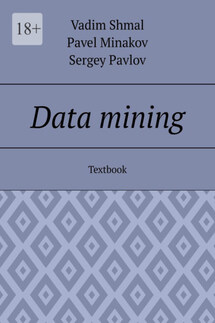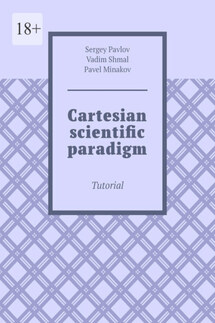The problem of demarcation in modern science - страница 5
Christians of the Christian Reformed tradition held some views similar to those of Augustine, although they generally differed from his ideas in that they believed that human knowledge of the world and the universe is limited.
Augustine’s doctrines and theological views began to spread throughout Europe in the sixteenth century with the works of John Calvin, Thomas Cranmer, and others.
The Roman Catholic Church held a higher degree of rationalism and believed that theology and metaphysics were unnecessary for salvation. However, the Roman Catholic Church did not reject the theology of Augustine, as it was of the opinion that it should be part of human understanding, and, therefore, a person is limited in his knowledge. The Roman Catholic Church was divided in its views on faith even regarding the ideas of Augustine, although the majority believed that human knowledge is limited, and therefore the only thing that salvation extends to is the doctrines of God.
Calvin himself was a Calvinist and adhered to the same ideas as Augustine, but added two different ideas to Augustine: in a first, Calvin believed that human knowledge is limited, but that through the Holy Spirit and faiths in man can reach the knowledge of the rational nature of God and secondly, that man is limited in his understanding of the nature of God, but through his actions he can achieve an understanding of God.
However, John Calvin rejected the doctrine that man was limited in his understanding of the universe; Calvin believed that through faith a person can know the universe and understand God.
Jean Calvin also explained Augustine’s epistemology and added that Augustine believed that everyone can receive a clear revelation about God through the Holy Spirit, through faith, and through reason.
In the sixteenth century, Johannes Reuchlin, an associate of Jean Calvin, was the first to write about Augustine’s philosophy, especially his doctrine of intelligence. Reuchlin made little reference to Augustine’s doctrine of grace, but rather to Augustine’s theology. Augustine always believed that the intellectual abilities of people are limited, and Reuchlin believed that this limited ability is the reason for a person’s need for salvation. Augustine taught that man is sinful and, as a result, cannot attain true knowledge. Reuchlin rejected Augustine’s teaching that humans are incapable of understanding the universe and that they need faith in God and use reason to be saved. Reuchlin believed that regarding Augustine’s view that human knowledge of God and the universe is limited, Reuchlin believed that Augustine’s view was wrong.
Augustine, according to Reuchlin, was wrong in teaching that man cannot receive true knowledge of the universe, but that man can attain knowledge through faith and the Holy Spirit in the knowledge of God. Although Augustine believed that human knowledge is limited, Reuchlin believed that human knowledge of the universe is unlimited. Reuchlin believed that with the help of reason, a person can receive a clear revelation about God and the universe.
Reuchlin was the first to suggest that human intelligence has unlimited potential. However, Reuchlin believed that a person’s ability to know is limited and that he can achieve knowledge of God only through faith and through the Holy Spirit.









